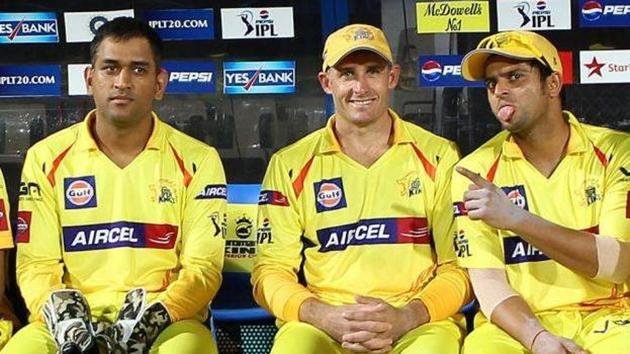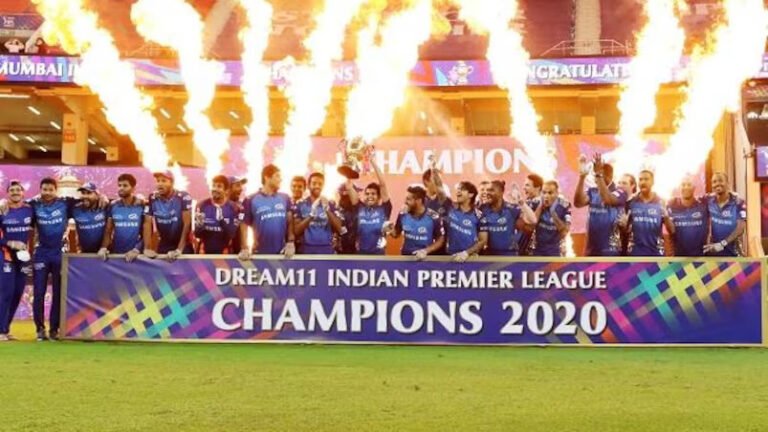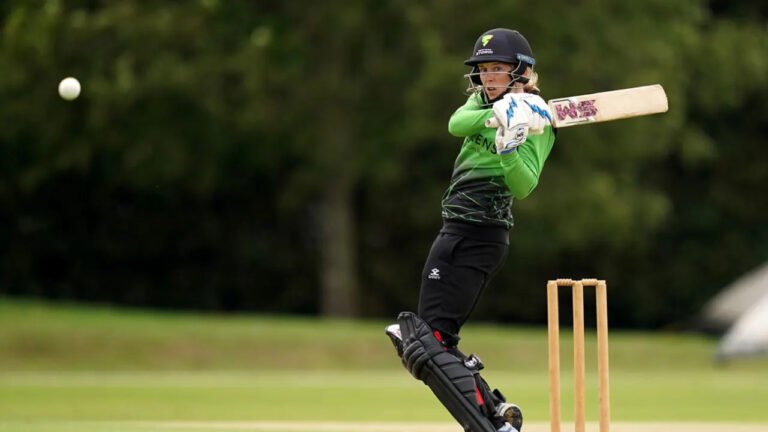Maxwell’s Record-Breaking 201 Leads Australia to World Cup Semi-final
Glenn Maxwell’s remarkable innings of 201* not only turned the tables for Australia but also etched his name in cricket history books.
This monumental effort propelled Australia to a thrilling victory against Afghanistan, securing their place in the World Cup semi-finals. Although Ibrahim Zadran earned the first Afghan World Cup centurion, his efforts ultimately proved in vain.
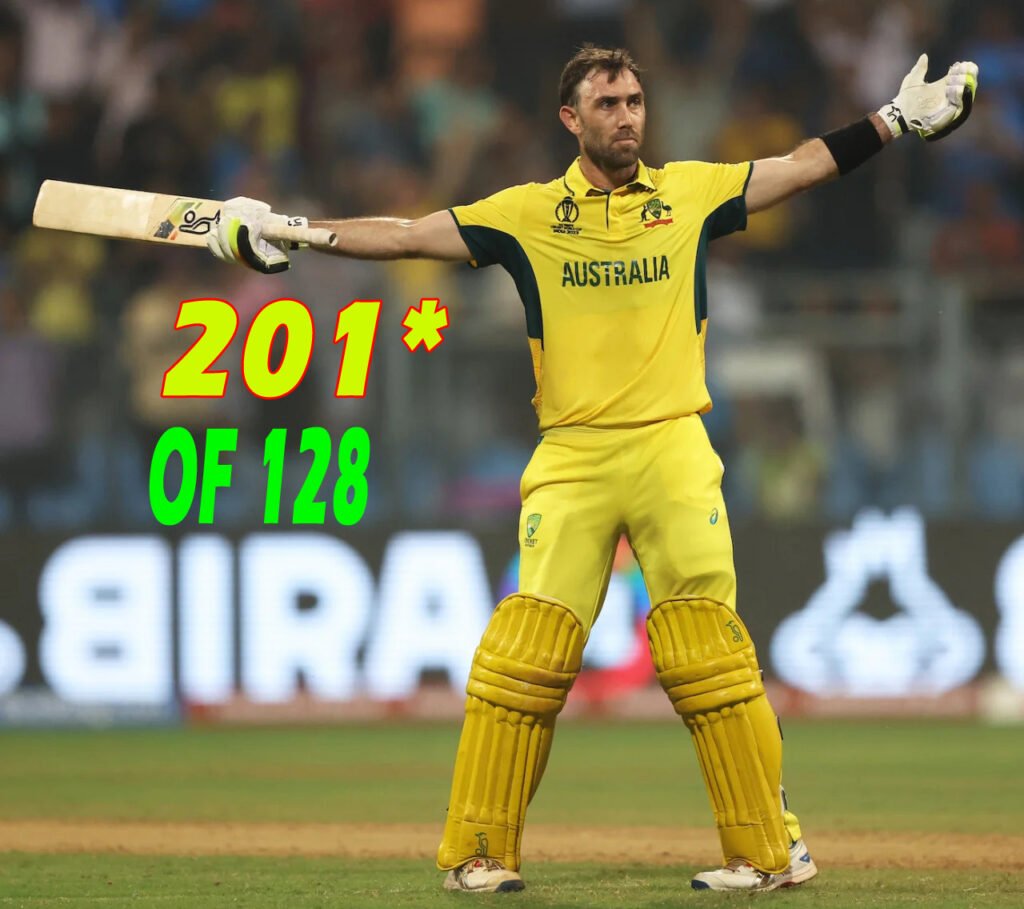
Afghanistan 291 for 5 (Ibrahim 129*, Rashid 35*, Hazlewood 2-39) lost against Australia 293 for 7 (Maxwell 201*, Rashid 2-44) by three wickets.
Australia was 91 for 7 chasing 292 at one time. Next, Glenn Maxwell They won the match and guaranteed their spot in the World Cup semi-finals as Glenn Maxwelled his way to a double-century.
Following Ibrahim Zadran’s World Cup century, Australia’s top order was thoroughly embarrassed by Naveen-ul-Haq and Azmatullah Omarzai, who looked set to write history at the Wankhede. To change the course of events, Maxwell came in with a stunning 201 not out, 179 of which came from an uninterrupted 202-run partnership with his captain Pat Cummins. Afghanistan was devastated by the outcome, which sealed Australia’s spot in the last four along with those of the hosts, India, and South Africa.
There were other things that became increasingly tense as the chase neared its conclusion. After bowling for 50 overs in the sweltering Mumbai heat, Maxwell started to get severe cramps. It was his limbs. They had just ceased operations. In the 41st over, he appeared to be in excruciating pain, forcing Adam Zampa, the next batter, to wait beyond the boundary as the physio treated him in order to keep him going.
And he set out. Maxwell continued to clobber sixes while batting, without lifting his feet, until he brought home the Australian miracle. In just 128 balls, 201 unbeaten runs with 21 fours and 10 sixes were scored. It was among the greatest ODI innings ever.
When Australia was 49 for 4 in need of 292 in the ninth over, Maxwell had come in to take on Omarzai’s hat-trick ball. After that, he got into a confusion that cost Australia Marnus Labuschagne’s wicket at number 14. The game appeared to be over when Mitchell Starc and Marcus Stoinis collapsed shortly after, leaving Australia at 91 for 7. However, it wasn’t. Maxwell persisted, and Cummins clung to him like a limpet, making just 12 runs (off 68 balls) in tandem with him for a double century.
In the last four overs, Maxwell reached his double century and Australia’s victory needed just 21 runs. He went 6,6,4,6 against Mujeeb Ur Rahman to deliver the double coup de grace.
Maxwell could have ended his innings at 33 if Mujeeb hadn’t dropped a sitter at a short fine. After that, Maxwell continued to do Maxwell things. He took Noor Ahmad to midwicket with a mow. He carted Mohammed Nabi over midwicket and shanked Mujeeb over the head. He amassed a century off 76 balls in Mumbai, showing off the reverse-sweep and other acrobatic smashes. After that, he only needed 52 balls to reach his second hundred. Cummins stood firm in defense at the other end. It was all that was required of him.
Also Read: Australia’s Dominance in World Cup 2023: Mastering the Art of Winning on the Big Stage
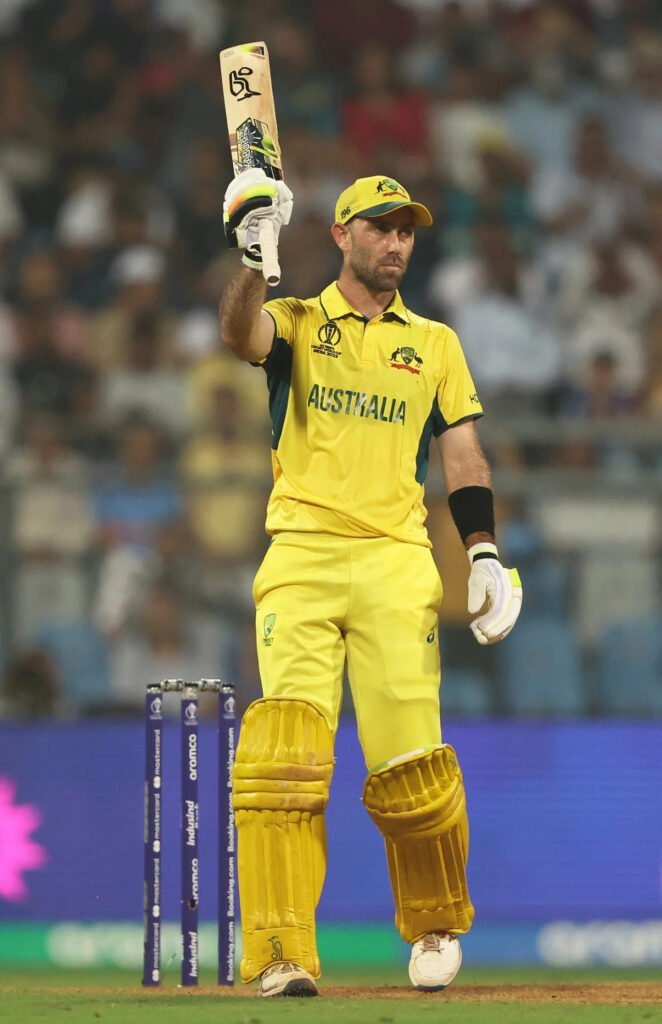
In 4696 ODIs, Maxwell’s 201* is the highest score ever recorded by a hitter ranked No. 6 or lower. Additionally, this is the third double-ton in men’s World Cup history and the first double-hundred by an Australian in men’s ODI cricket. In ODI cricket, Maxwell and Cummins’ unbroken 202-run partnership is also the most for the eighth wicket or less.
The only bowler from Afghanistan to elude Maxwell’s one-man wrecking crew was Rashid Khan. Although Afghanistan had selected four spinners for this match, Australia’s pursuit was severely damaged by Naveen and Omarzai. Under the lights, they bowled with the lines and lengths of a test match, swinging the new ball both ways. Before pinning Mitchell Marsh leg before wicket with an inswinger, Naveen first tore out Travis Head with an outswinger.
If Rahmat Shah hadn’t wasted a challenging opportunity at gully, Naveen might have also dismissed David Warner on 4. Before Omarzai floored his off stump with an inswinger, Warner added 14 to his total.
Even though Omarzai, only 23 years old, was only playing in his 20th ODI, his talent level allowed him to orchestrate Warner’s elimination. He bowled Warner a maiden after hitting a hard length, then went fuller and tore through his defences. Omarzai proved to the world that he could handle the pressure of playing international cricket after dominating the powerplay during his Bangladesh Premier League (BPL) stint earlier in the year.
Josh Inglis edged to first slip on the following ball, which was an outswinger. Another outswinger was played on the following ball, but Maxwell stopped Omarzai from getting a hat-trick, and the rest is history.
Afghanistan may have been tempted to end up with another victorious pursuit after three straight victories. But on a slightly unusual (and drier than usual) Wankhede track, Hashmatullah Shahidi rejected that and supported his batters to put runs on the board.
On a sweltering afternoon, Ibrahim took the lead and batted through the innings to finish unbeaten at 129 off 143 balls. The highlight of his innings came in the 14th over when he blasted four straight over the wicketkeeper off of Cummins. He and Rashid, who scored an undefeated 35 off only 18 balls, lay the foundation for Australia‘s onslaught later in the slog overs. After smashing 58 runs in just 27 balls combined, Ibrahim and Rashid lifted Afghanistan to 291; yet, in the darkness, their elation gave way to incredulity and ultimately, impotence.


